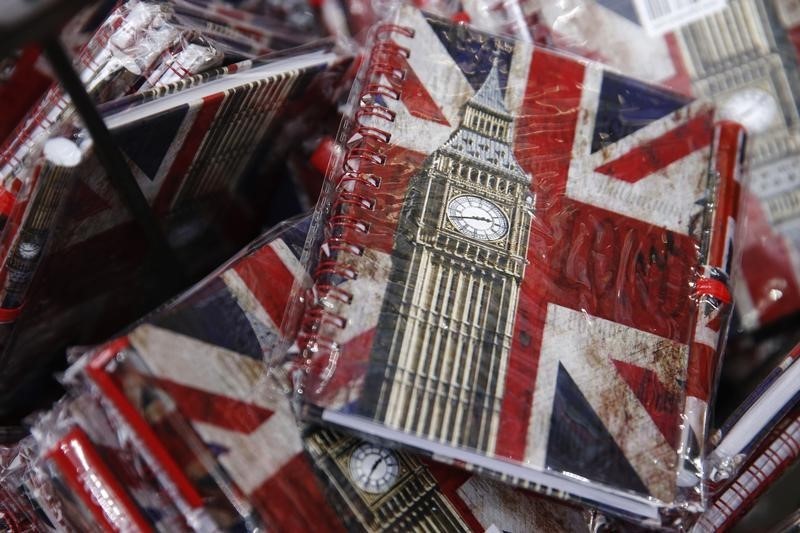By William Schomberg
LONDON (Reuters) - British voters risk paying a "Brexit tax" equivalent to a month's salary by 2020 if they leave the European Union, the OECD said on Wednesday, joining a chorus of economic bodies warning against an exit.
Angel Gurria, secretary general of the Organisation for Economic Co-operation and Development, said Britain outside the EU would face less access to the bloc's single market, lower investment and companies moving abroad.
The global economic policy body warned of further strains on Britain's wide current account gap and a weaker pound, and Gurria accused the "Out" campaign of creating a "delusion" by saying the country would prosper on its own.
"Britain, look at yourself in the mirror, naked. Do you like what you see? Mostly I hope you come out saying: not too much," Gurria said in a speech at the London School of Economics.
The OECD said Britain's economy after Brexit would be 3 percent smaller by 2020 than it would be if it stayed in the EU, equivalent to 2,200 pounds per household, rising to a 5 percent hit by 2030, close to an estimate made by Britain's finance ministry last week.
"The Brexit tax would be a pure deadweight loss, a cost incurred with no economic benefit," Gurria said.
Official data on Wednesday showed Britain's economic growth slowed in the first three months of 2016, meaning "the first payments of the Brexit tax are already being made", Gurria said.
"Our conclusion is unequivocal," he said. "There is no upside for the UK in Brexit, only costs that can be avoided."
CREDIBILITY QUESTIONED
The "Out" camp challenged the OECD's credibility, recalling how it had once suggested Britain might benefit from joining the euro currency, should it prove a success. "Vote Leave" campaigners accused Gurria of bullying voters.
The Adam Smith Institute, a free-market think tank, said the OECD made "improbable assumptions" that a post-Brexit Britain would initially have less favourable trading ties with the EU than South Korea or Mexico.
"This is very unlikely given the costs to both the EU and the UK," its executive director Sam Bowman said.
A poll published on Wednesday showed the "In" campaign had a seven-point lead over "Out". Meanwhile, two opinion polls on Tuesday showed support for the "Out" campaign had risen.
Last week, U.S. President Barack Obama called for Britain to stay in the bloc, raising expectations that the "In" camp would gain momentum.
Sterling was steady on Wednesday after hitting a 12-week high against the dollar a day earlier.
"Out" campaigners, chief among them London Mayor Boris Johnson, argue that Britain's economy would flourish outside the EU by saving its annual contributions to bloc, freeing itself of red tape and striking its own trade deals.
But Gurria said the possible savings from EU budget contributions were minute compared with the boost to the economy from being in the EU.
He also took on one of the "Out" campaign's main arguments, that Britain was suffering from large flows of EU migrants. Foreign workers coming to Britain made a positive contribution to the country's public finances, he said.
Earlier this month the International Monetary Fund said Brexit would deal a damaging blow to the global economy. The IMF is due to come up with a more detailed assessment of the impact of a Brexit next month.
The Bank of England has said Britain's economy has benefited from being in the EU and most British employers' groups have stressed the importance of staying in the bloc.

British economists who support Brexit are due to announce their research on Thursday.